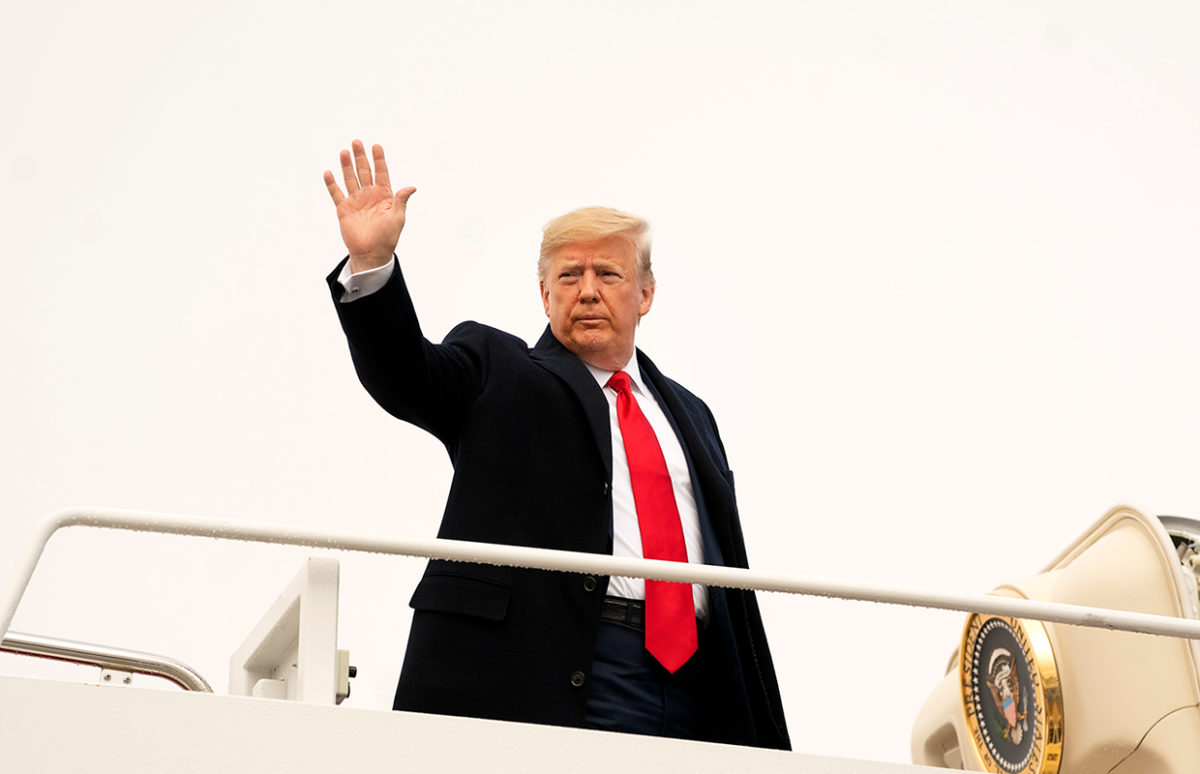On 18 December, President Donald Trump was impeached by the House of Representatives, only the third president in U.S. history to be rebuked in this way. The second stage of impeachment, before the Senate, is unlikely to succeed, but it will run into the beginning of primary season for the November presidential election.
The impeachment process had been launched three months ago after an anonymous intelligence officer whistleblower wrote a letter expressing concerns about a telephone conversation President Trump had in July with Ukrainian President Volodymyr Zelensky. The whistleblower alleged that Mr Trump threatened to withhold U.S. financial aid to the country unless Mr Zelensky investigated corruption allegations about Joe Biden and his son Hunter, who worked for a Ukrainian company when his father was Barack Obama’s Vice-President. Joe Biden is one of the frontrunners in the race for the Democratic candidature to oppose Mr Trump in the election.
President Trump denies any wrongdoing, but he was on two counts: abuse of power by soliciting the interference of Ukraine in the 2020 U.S. presidential election, and obstruction of Congress by forbidding certain of his officials to appear before the enquiry into the accusations.
Step Two
Impeachment is a two-part process. Both previous presidents who were impeached by the House were absolved by the Senate: Andrew Johnson and Bill Clinton.
It is also, as Philip Ewing of National Public Radio pointed out, “only a quasi-legal process — it is not a strict assessment of whether the president broke the law. It's largely political and has been since President Andrew Johnson was impeached in 1868 by a faction then known as the ’Radical Republicans.’"
For the President to be definitively impeached by the Senate, there must be a two-thirds majority, or 67 votes. Since the Republicans currently hold 53 of the 100 seats in the Senate, about 20 Republicans would have to vote against President Trump, an unlikely scenario.
For such an apparently important part of the American political system, there is also no set format for it. Just as the Democratic majority in the House ran the investigation in the lower house, the Republican majority in the Senate will run the proceedings in the upper chamber. Last week, Republican Majority Leader Mitch McConnell said on Fox that Republican senators would act in "total co-ordination" with the president's team during the trial. Hardly an image of impartial jurors. McConnell has decided that the Senate impeachment trial will not include outside witnesses, which will let off the hook those who refused to attend the first hearings such as former national security adviser John Bolton.
The whole process is likely to run into January or later. With the earliest Democratic primaries starting on 3 February, and a large number on Super Tuesday, 3 March, it can’t fail to influence the campaign one way or another.
Copyright(s) :
Official White House Photo by Joyce N. Boghosian
Tag(s) : "Congress" "constitution" "impeachment" "law" "U.S. elections" "U.S. politics" "U.S. president" "whistleblower"






